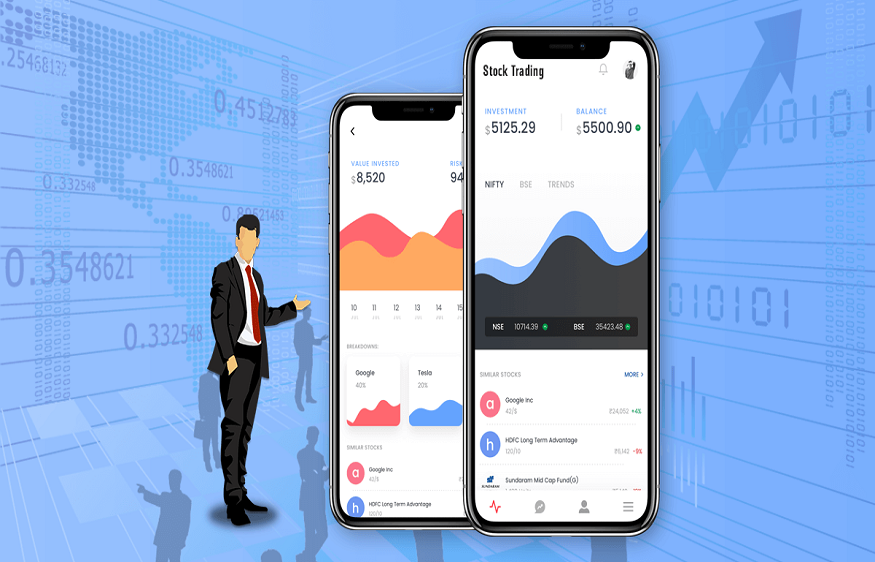Futures and options are stock derivatives that are traded on the stock exchange. They are a contract between two parties that allows them to trade a stock or index at a certain price or level at a future date. These twin derivatives protect investors against future stock market changes by defining the contract’s price. The actual futures and options deal, on the other hand, is frequently significantly more complicated and fast-paced.
While many consumers deal in futures and options through a trader, it is always good to grasp how they work before investing in them. Here’s what you should know.
Difference between Futures and Options
Although these twin stock derivatives have certain similarities, they also differ significantly in critical ways. Both derive their value from an asset known as the underlying, which can be shares, commodities, exchange-traded funds (ETFs), stock market indices, or anything else. Both represent a future transaction.
Here are a few important distinctions between the two:
Right vs. Obligation
Futures contracts indicate a promise to trade that must be fulfilled by the given date. On the other hand, options allow the buyer the right to execute the contract but not the responsibility.
Advance payments
When entering into a futures contract, there are no upfront expenses. Instead, you make the payment only when you square off the futures contract on the designated date. However, futures contracts require you to put up a “margin,” a percentage of the trade’s value. As a result, “leverage” increases your earnings and losses.
Date of trade
Futures indicate a commitment to trade that must be squared off at the designated date. On the other hand, options contracts offer the buyer the right but not the duty to execute the contract. When entering into a futures contract, there are no upfront charges. The payment is made only when the futures contract is squared off on the designated date. On the other hand, futures contracts require you to post a “margin,” a percentage of the trade’s value. As a result, “leverage” magnifies your profits and losses.
Risk
If the price falls, you can choose not to exercise your options. However, you won’t have the same amount of leeway for futures because the deal must take place on the designated date, regardless of the price. As a result, options potentially lower the chance of loss. In actuality, however, 97% of options expire without being traded. As a result, options traders are more likely than not to lose their premium.
How to Invest in Futures and Options?
A Demat account opening is necessary to trade. But before the Demat account opens, it is necessary to search for the finest online trading account and make sure you understand the fundamentals of futures and options trading. At the same time, you can also invest through an online stock trading app. Kotak stock trading app can help you with the easy procedure of stock trading.
Derivative trading in the stock market
Derivatives can be traded on the National Stock Exchange (NSE) and the Bombay Stock Exchange (BSE). The NSE allows traders to trade futures and options on over 100 stocks and nine key indexes. Being the derivative with the most leverage, futures tend to move quicker than options. A futures contract can be held for a maximum of three months. In a typical futures and options transaction, traders often pay the difference between the agreed-upon contract price and the market price. As a result, you are not required to pay the underlying asset’s full value.
Derivative trading in commodity
Commodity exchanges such as National Commodity & Derivatives Exchange Limited (NCDEX) and Multi Commodity Exchange are two of the most frequent venues for futures and options trading (MCX). The extreme volatility of commodity markets is the rationale for substantial derivative trading in these markets. Commodity prices may vary significantly, and futures and options allow traders to hedge against a potential drop.
Simultaneously, it permits speculators to benefit from commodities projected to rise in price in the future. While ordinary investors are familiar with futures and options trading in the stock market, commodities training needs more knowledge.
The Bottom Line
Futures and options are sometimes seen as the more enigmatic relatives of stock trading. These are fast-moving deals with daily margin fluctuations. However, they allow you to shield yourself from a turbulent market while gradually growing your earnings if handled properly.
Trading futures and options are not rocket science, but it does require some knowledge before you get started. It may be an excellent instrument for hedging your bets and protecting you from market volatility. Alternatively, as a speculator, it may be a means to profit from volatility, although that strategy comes with its own set of significant dangers.




